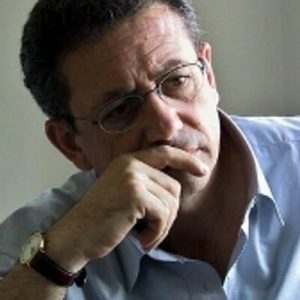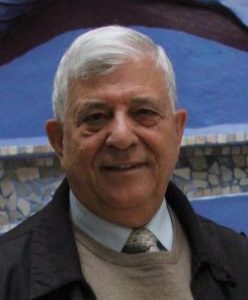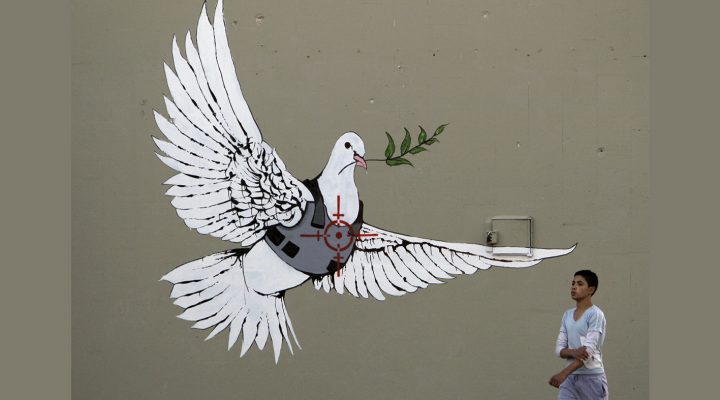With war raging once again in Israel and Palestine, it seems far more people have opinions to proclaim about it than openness to listening.
After the horrific attacks carried out by Hamas in which more than 1,600 people were killed and many more injured, the understandable response has been to come to the defense of the people who were attacked. Many American Christians, including Republicans and Democrats, have publicly declared we should “stand with Israel.”
But the attacks on Israel over the past few days did not happen in a vacuum. They cannot be reduced to simplistic dichotomies or “both sides” arguments about good guys and bad guys between Republicans and Democrats, conservatives and liberals, evangelicals and non-evangelicals, or Israelis and Palestinians.
According to the United Nations Office for the Coordination of Humanitarian Affairs in the occupied Palestinian territory, during the time of 2008 through September 2023, there have been 6,407 Palestinians killed compared to 308 Israelis. Given the disparity in the numbers of deaths, it seems reasonable to wonder if there is some legitimacy to Palestinian anger even if one does not condone violence.
Failure to listen
One obstacle in the way of learning more about Palestinian perspectives is that Palestinians who speak up tend to be dismissed, silenced or grouped in with Hamas.

Mustafa Barghoti
Palestinian activist and legislator Mustafa Barghoti told CNN’s Fareed Zakaria: “Any Palestinian who struggles for his right or for freedom is described as a terrorist. And the question here: Do we have the right to struggle for freedom? Do we have the right to struggle for real democracy? Do we have the right to have normal, democratic elections, which unfortunately Israel and the United States don’t support?”
“Any Palestinian who struggles for his right or for freedom is described as a terrorist.”
According to Barghoti, Palestinians are entitled to these freedoms. “But the unfortunate thing — if we struggle in a military form, we are terrorists. If we struggle in a nonviolent way, we are described as violent. If we even resist with words, we are described as provocateurs,” he explains. “If you are a Jewish person, and there are many of those who support Palestinian causes, they call him ‘self-hating Jew.’ This should end. It doesn’t make sense. We should all have equal life. We should all have peace. We should all have justice. And we should all live in dignity. The main way to achieve that is to end occupation and the system of apartheid that I am sure no Jewish person can be proud of.”
Evangelical support for Israel and war
The United States suffered an unexpected attack on its soil on Sept. 11, 2001. And the same rhetoric we’re hearing today was present back then.
After decades of being shaped by Christian Zionism, the dispensationalist framework of the best-selling “Left Behind” series, and theologies of justice as violent retribution, evangelicals were primed to respond to the September 11 attacks with support for Israel and the preemptive war in Iraq.
Richard Land, who then was president of the Southern Baptist Convention Ethics and Religious Liberty Commission, argued in 2002 that Romans 13 supports the idea that “God ordained the civil magistrate” to punish those who do evil.
In Jesus and John Wayne, historian Kristin Du Mez explained: “It wasn’t just the evangelical elite who supported a preemptive strike. In 2002, ordinary evangelical Christians were ‘the biggest backers of Israel and Washington’s planned war against Iraq’: 69% of conservative Christians favored military action, a full 10 percentage points higher than the general population. In 2003, once the war commenced, 87% of white evangelical Christians supported Bush’s decision to go to war, compared to 70% of Protestant mainliners and 59% of secular Americans. As one evangelical parishioner explained, Jesus might have preached a gospel of peace, but the Book of Revelation showed the suffering Messiah turned into the conquering Messiah; in the Bible, God didn’t just sanction ‘war and invasion,’ God encouraged it.”
“Jesus might have preached a gospel of peace, but the Book of Revelation showed the suffering Messiah turned into the conquering Messiah.”
Du Mez added that these evangelical positions grew from being “steeped in a literature claiming that men were created in the image of a warrior God.”
When Trump was elected president, he tapped into these evangelical priorities by moving the capital of Israel from Tel Aviv to Jerusalem and declaring, “That’s for the evangelicals. You know, it’s amazing that — the evangelicals are more excited by that than Jewish people.”
Given how steeped Americans and especially evangelicals are in false dichotomies about Israel, in lack of awareness for their own biased lenses, and in celebration of politics as spiritual warfare, it probably would be a bridge too far for us to ask them to listen and learn from peaceful Palestinian Muslims in the weeks following an attack on Israel by Hamas.
But what about listening to Palestinian Christians? Do such people even exist? And if so, might they have some perspectives worth considering?
Bethlehem Bible College
After studying in the United States, Bishara Awad returned to Palestine in 1979 to become the principal of Hope Christian School in Beit Jala. He began to notice how often his students would graduate, pursue theological higher education overseas, and never come back. So Awad created a vision for “an evangelical, inter-denominational Bible college in Palestine, where students could study and serve in their native land.”

Bishara Awad
A group of Arab pastors joined Awad’s vision and formed Bethlehem Bible College, which was led by a board of Orthodox, Catholic, Lutheran, Anglican and evangelical leaders.
While the school’s leadership is diverse, its theology is something conservative evangelicals should be willing to listen to, including affirmations of the inspiration and authority of Scripture, the Trinity, the death and resurrection of Jesus, salvation by faith and even of the judgment of damnation for unbelievers.
As BBC grew over the decades, they not only built out their own campus but added Galilee Bible College in 2007 and Nazareth Evangelical College in 2015. They also now have a satellite campus in Gaza and note, “This vital program serves to strengthen the small Christian community in the Gaza Strip.”
According to its website: “Today, Bethlehem Bible College is a flourishing college with a BA program in biblical studies and Christian education, an MA program in Christian leadership and ministry, an MA program in peace studies, and diploma programs in tour guiding and media studies, accredited through MEATE (Middle East Association for Theological Education), the Palestinian Ministry of Higher Education and several international theological associations. Additionally, BBC is launching a distance e-learning program, which will be available for students across the Arabic-speaking world.”
Christ at the Checkpoint conferences
One of the ways BBC encourages Christians “to prayerfully seek a proper awareness of issues of peace, justice and reconciliation” is through its Christ at the Checkpoint conferences.
“We wish to find Jesus at the center of everything we do and to make his life our life. Which means finding courageous love for Palestinian Arabs and Israeli Jews alike.”
“We are a community of evangelical Christians who believe that following Jesus with integrity means that our lives are formed by our love for God, the teaching of the Bible and a fearless life of discipleship in the complexities of the Israeli-Palestinian conflict,” the website explains. “We believe that one of the first hallmarks of discipleship is love for both our own community and for our enemies. We wish to find Jesus at the center of everything we do and to make his life our life. Which means finding courageous love for Palestinian Arabs and Israeli Jews alike.”
The theme of the upcoming 2024 conference, which will take place in Palestine, will be “Do Justice, Love Mercy: Christian Witness in Contexts of Oppression.”
Their YouTube channel includes content from each of the previous conferences, going back to 2010. Additionally, the website features a series of smaller documentaries and a series on the “History of the Palestinian Israeli Conflict” by Jonathan Kuttab, a human rights lawyer and the cofounder of the Palestinian Center for the Study of Non Violence who serves on the board of the Sabeel Ecumenical Liberation Theology Center in Jerusalem.
Some sessions evangelicals may find particularly helpful include:
Palestinian Christian Challenges with Zionism — Daniel Bannoura
What Is Our Attitude Toward Islam? — Daniel Bannoura
Palestinian Christian Response to Christian Zionism — Munther Isaac
Is Israel a Fulfillment of Prophecies? — Munther Isaac
Testimonies of Young Palestinian Christians — Areej Murad
The Delegitimization of Palestinian Christians — Jack Munayer
The Gospel in the Face of Religious Extremism — Jack Sara
Rick Pidcock is a 2004 graduate of Bob Jones University, with a Bachelor of Arts degree in Bible. He’s a freelance writer based in South Carolina and a former Clemons Fellow with BNG. He recently completed a Master of Arts degree in worship from Northern Seminary. He is a stay-at-home father of five children and produces music under the artist name Provoke Wonder. Follow his blog at www.rickpidcock.com.
Related articles:
In this war, there are no ‘good guys’ | Analysis by Mark Wingfield
Southern Baptist support for Israel has traveled a winding road, scholar explains
Anti-Semitism and criticism of Israel are not the same | Opinion by Miguel de la Torre
Robert Jeffress says Trump ‘on the side of God’ with Israel embassy move


